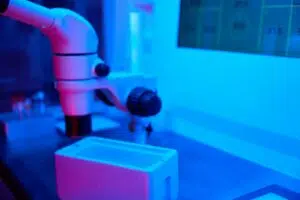Delaying pregnancy due to career plans, getting married later, or undergoing intense treatment processes can impact fertility. Freezing and storing your eggs offers a way to preserve fertility, ensuring that you can pursue parenthood when the time is right for you.
What is Egg freezing?
Egg freezing allows women to preserve their fertility. Having your eggs extracted and stored for future use (called cryopreservation) may give you the best chance of conceiving later on, especially if you’re facing a medical treatment — such as chemotherapy, treatment of severe endometriosis or gender affirming surgery — or a health condition such as an autoimmune disease that can affect fertility.
Who Should Consider Egg Freezing?
- Women planning to delay pregnancy past the age of 35.
- Women postponing childbearing for career or personal reasons.
- Women undergoing chemotherapy or other radiation treatments.
- Women facing surgical procedures involving their ovaries.
Egg Freezing Process
The egg freezing process mirrors a classic IVF cycle, with the key difference being that the eggs are not fertilized before freezing.
Steps Involved:
- Stimulation Injections: On the 2nd or 3rd day of the menstrual cycle, hormone injections are started to stimulate the ovaries to produce more eggs. These injections can be administered in the woman’s home country.
- Follicle Maturity: After approximately 10 days of injections, the follicles reach maturity. A trigger injection is then given to prepare the eggs for collection.
- Egg Collection: Egg collection occurs about 36 hours after the trigger injection. This quick procedure is done under sedation, and women need to be in Cyprus for only one day.
- Freezing: The mature eggs collected are then frozen for future use.
For further information and guidance, please contact one of our coordinators.









